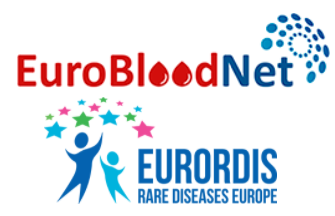Update on the Establishment of the European Network of Sickle Cell Disease Patients Organizations

Belgium has elected its National Representatives
The ERN-EuroBloodNet, in collaboration with EURORDIS, is establishing the European Network of Sickle Cell Disease (SCD) Patients Organizations: a bottom-up umbrella network of national and local organizations of SCD patients' advocates, whose objective is to give a strong representation of the disease and make its needs visible at European level.
Two or more SCD Patients' Representatives, who are elected on behalf of all the national patients' organizations, would represent each European Member State. Among all them, one will would become ePAG for the ERN-EuroBloodNet.
The ERN-EuroBloodNet has already identified SCD National Representatives for Italy, France, Spain, Portugal (see their interview ) and recently, in December 2020 also Representative from Belgium have been identified. Four different Belgian patients associations have participated to the election and ten people living with SCD not affiliated to any organization.
We have raised three questions to them. Their answers are included in the following interview:
Question 1: What do you think it is needed to be implemented at National level for improving SCD patients' quality of life or patients' management?
Set up an education center much like it already exists for diabetics for example. To help patients take care of themselves on a daily basis and better manage sickle cell crisis at home. Daily support as can be accessed by other patients with chronic diseases. Example: free psychological follow-up, school follow-up for children, etc
Wema Liza on behalf of the association Le petit prince de Montzen
In my humble opinion, I think that SCD should have more visibility at national level. Sharing information is important, even essential, as this would allow rapid access to scientific research and visibility for the aids set up to facilitate the daily lives of patients with SCD. Training and information are important at a national level. This will allow priority and facilitated access to a specific care network. We can also imagine screening on a larger scale.
Armel Munsongo
Question 2: What does it mean for you being part of a European Group? Which are the first actions do you imagine in the group?
Create a platform referencing non-profit organizations and their specificities (detection, psychological support, support for families, contact with the closest centers of expertise or specialists, etc.). Thus each patient or family with a need will know which non-profit organization, or which doctor to contact etc.
Wema Liza on behalf of the association Le petit prince de Montzen
In addition to more widely distributed information, being part of a European group represents real opportunities. On a European scale, partnerships between Member States will allow better information for affected families. It will also allow progress to be made in the medical field, as larger scale studies can be carried out.
Initially, it would be advisable to make an inventory as complete as possible at a European level by collecting data such as research, studies, patients' experiences, existing treatments... Subsequently, the ideal would be to create a site gathering all the information and, above all, to create a space for sharing for patients but also for anyone wishing to learn more. Exchange and training days could also be organized with families, medical staff and key players in the lives of SCD's patients.
At the same time, other actions are also essential: the pooling of research, the optimization of patient care, partnerships in international monitoring, for example in the event of travel or expatriation, the standardization of medical care....
Armel Munsongo
Question 3: How do you think patients experience could actively contribute to SCD's cause, like for instance: patient clinical management, research, quality of life, social rights, etc.?
Having the testimonies of patients and their families would help to set up an effective methodology for identifying people with sickle cell disease. Let the numbers talks is important so the society can realize that sickle cell anemia not only affects black people, but the patients are pleintfull. More testimonies and return of experience will help us to have more weight.
We can't expect changing if we don't request it and don't keep talking about difficulties patients and their families goes through. instance: patient clinical management, research, quality of life, social rights, etc.
Wema Liza on behalf of the association Le petit prince de Montzen
Patient experience is an essential contribution to the cause of SCD. It would be interesting to collect patients' testimonies in order to report on their experience to the medical authorities but also to inform those working in the field, care structures and structures providing assistance in daily life about the journey, the pain, the feelings, the difficulties and the repercussions of the patient in his or her daily life. This would also enable them to fight for compensation and social cover. Focus groups could be set up to reflect on how to optimize the life course of SCD's patients, as well as discussion groups for patients and their families to provide psychological support.
Armel Munsongo

